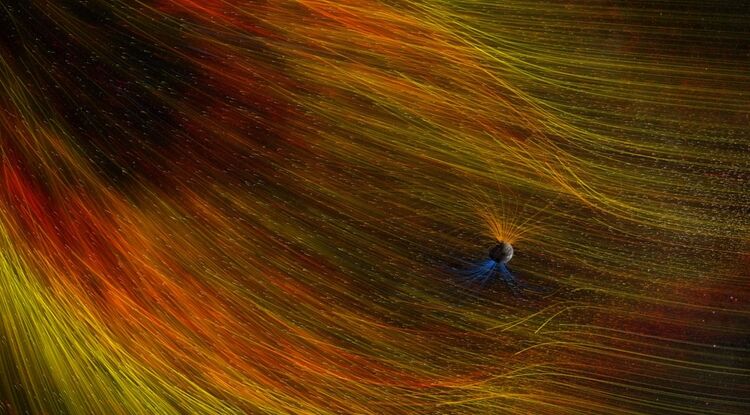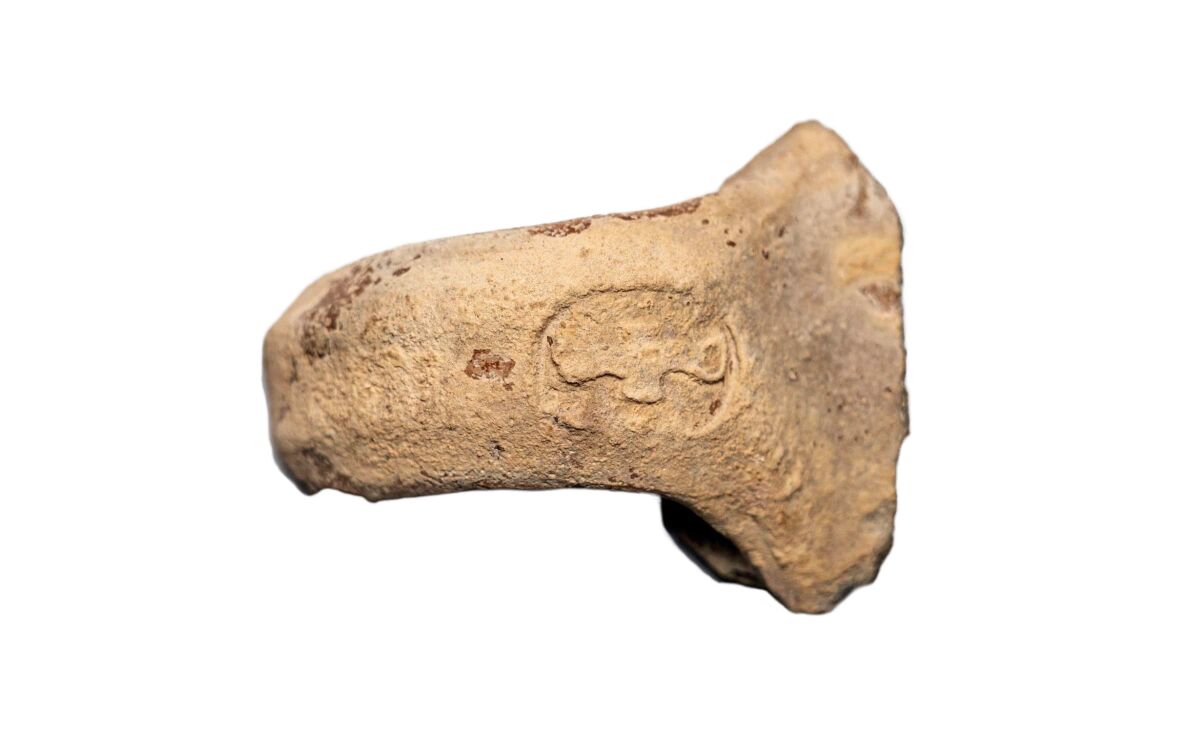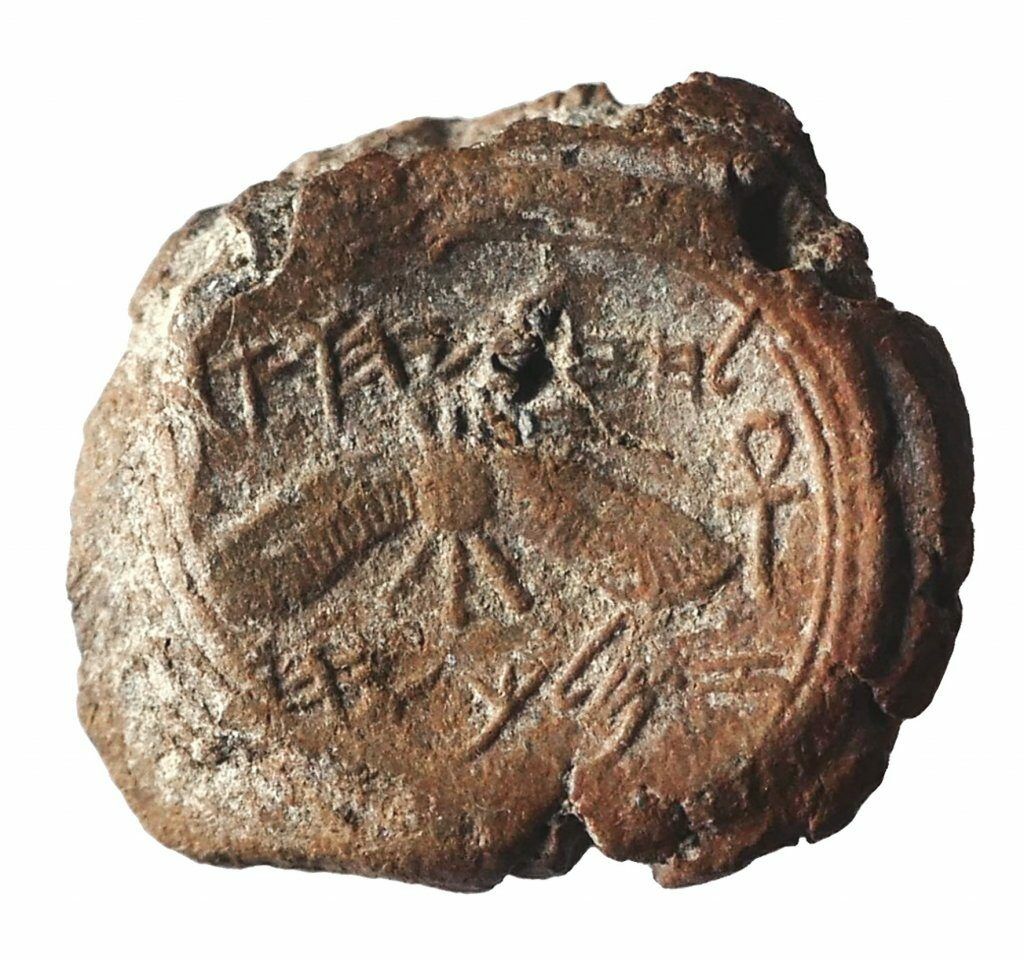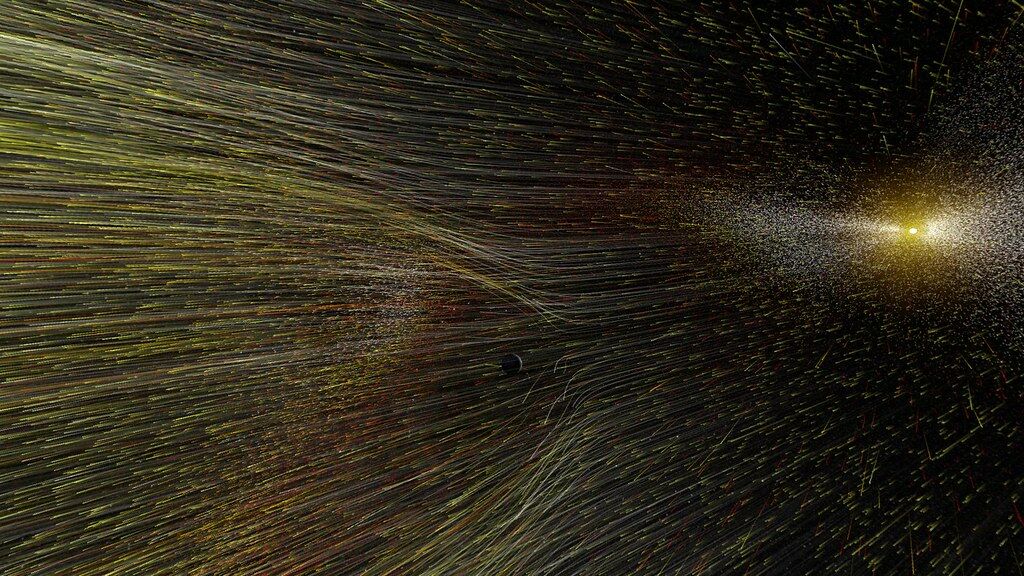Pottery fragments, to most people, are mundane, worthless pieces of hardened clay. To archaeologists, they are pretty valuable (particularly rims and bases): Over time, pottery styles gradually change, and by compiling a lexicon of profiles, it is possible to date layers of earth based on the different styles of pottery fragments found within. Potsherds are also valuable to petrographers, who can analyze the material makeup of the pottery and determine the location from which the clay was sourced in order to make the artifact.
But there is another peculiar field with an interest in pottery remains: paleomagnetism. Recently, a paleomagnetic discovery was made attesting to the fiery intensity of the Babylonian destruction of Jerusalem. Three years ago, another remarkable paleomagnetic discovery was made, revealing dramatic new evidence about Earth’s magnetic field during the reign of King Hezekiah—and quite possibly attesting to one of the most remarkable miracles in the Bible.
Geomagnetism and Pottery
What is paleomagnetism? (Bear with me as we go through a little tedium before getting to the really interesting stuff.) Paleomagnetism is the study of Earth’s magnetic field as it existed and fluctuated throughout our ancient past. Earth’s magnetic field is created by electrical currents generated by the outer core: a 2,400-kilometer-thick layer of primarily molten iron and nickel, turning nearly 3,000 kilometers beneath our feet. There’s a lot scientists don’t know about how it works, but the movements of the core directly relate to the often changing and fluctuating nature of the magnetic field.
Earth’s magnetic field shields us from cosmic radiation. Some apocalyptic films—and even news—have been made on this subject in the past several decades (cue my favorite, the Hollywood movie The Core), because Earth’s magnetic field has been diminishing fairly rapidly since around c.e. 1700. (According to scientists using the new swarm satellite system, the “axial dipole” component of the magnetic field is decreasing 5 percent per decade, and is currently quite weak.) Rather than causing the end of the world, however, scientists expect that this weakening will eventually cause the magnetic field to flip—something that has happened several times throughout Earth’s history. Still, the last time researchers believe this occurred was 800,000 years ago—so you could say it’s a step into the unknown.

How this all relates to pottery is quite interesting. Tel Aviv University Prof. Erez Ben-Yosef explains: “Ceramics have tiny minerals—magnetic ‘recorders’—that save information about the magnetic field of the time the clay was in the kiln.” The firing of a vessel in the kiln essentially captures and preserves the “fingerprint” of Earth’s fluctuating geomagnetic field at that precise point in time. This is known as “thermoremanent magnetization”—weak magnetization of the clay objects in the intensity and direction of Earth’s magnetic field. With an established database of these values over time, scientists could eventually use this method for dating remains with extreme accuracy.
But in order to establish a solid dating database of geomagnetic values over time, scientists must first take artifacts of precisely known dates and use their magnetization to provide that scale window into how Earth’s magnetic field has changed throughout history. And pottery fragments known as lmlk seals provide just such an opportunity.
And a 2017 study of these artifacts by researchers from the universities of Jerusalem, Tel Aviv and San Diego discovered something quite remarkable and dramatic about Earth’s magnetic field during the reign of King Hezekiah.
LMLK Seals
lmlk seals are unique stamps that adorned the handles of specific Judahite vessels, carrying the inscription lmlk (pronounced l’melekh), meaning “belonging to the king.” Dating of these items, as well as their parallels to personal bullae (clay seal stamps), shows that their use was instituted during the reign of King Hezekiah at the end of the eighth century b.c.e.

There are two general designs ascribed to Hezekiah’s period: a four-winged scarab design and a two-winged sun design. Following Hezekiah’s reign, lmlk seals of differing styles continued to be used throughout Judah in varying form, right up to the destruction of Jerusalem around 586 b.c.e., and continuing on further by the Jews who remained in the land up until the second century b.c.e. The clearly indicative nature of the stamps makes them extremely easy to date; therefore, analyzing the magnetization of their minerals from inside the kiln provides a clear timescale of Earth’s transforming magnetic field over the course of some 550 years.
The results of the analysis of these pottery handles were stunning: They revealed a massive geomagnetic spike in the late eighth century b.c.e.
Evidence of this Iron Age spike had been discovered as early as 2009—but back then, it had been dismissed as a data aberration, too extreme to have actually occurred. But this new study has confirmed the original data, and then some. This random, massive spike in the magnetic field at the end of the eighth century b.c.e. was immediately followed by a “sharp drop of 27 percent in field intensity,” which then in turn steadily diminished over the following 500 years, as shown by the magnetization of the later lmlk seals.
What could have caused such a dramatic spike, such dramatic behavior within Earth’s core? Scientists don’t really know. But there is a fascinating related geologic event recorded in the Bible that occurred at this very time period.
The Sundial of Ahaz
The late eighth century b.c.e. was a turbulent time for the southern kingdom of Judah. Midway through King Hezekiah’s reign, the land had been invaded and essentially conquered wholesale by the Assyrians, led by King Sennacherib. Only Jerusalem remained. To make matters worse, Hezekiah was holed up in the capital city with a life-threatening illness. The Prophet Isaiah had just informed him that he would soon die. “Then Hezekiah turned his face toward the wall, and prayed unto the Lord …” (Isaiah 38:2).
God heard Hezekiah’s plea for help, and Isaiah returned, assuring the king that he would be healed in three days, that he would reign 15 more years, and that the Assyrian siege would be broken. Hezekiah asked for a sign that this would occur. 2 Kings 20:9:
And Isaiah said: ‘This shall be the sign unto thee from the Lord, that the Lord will do the thing that He hath spoken: shall the shadow go forward ten degrees, or go back ten degrees?
Hezekiah realized that the greater miracle would be for the shadow to go backward, rather than forward, and chose that option. “[B]ehold, I will cause the shadow of the dial, which is gone down on the sun-dial of Ahaz, to return backward ten degrees.’ So the sun returned ten degrees, by which degrees it was gone down” (Isaiah 38:8).
The physics to enable such an event to happen reveal a jaw-dropping miracle. Of course, the sun doesn’t rotate around the Earth—on a literal level, this scripture apparently indicates that the Earth momentarily reversed rotation.
The physical implications of such an event go beyond moving shadows. Recent studies have modeled what would happen if the Earth rotated in the opposite direction. The results weren’t actually catastrophic. The key would be in slowing the Earth’s rotation safely and gradually enough in order to reverse direction. Of course, in the realm of miracles, anything is possible. But imagine stirring a cup of tea—think of Earth’s swirling, molten outer core. Then, the stirring motion is slowed and reversed—and in the process you have some waves and resistance—a “spike,” you could say, in volatility. Could this be the explanation for such a massive geomagnetic spike in Hezekiah’s day?

Perhaps there is another explanation for the event. Again, in the realm of miracles, anything is possible. But whatever the answer, it seems rather coincidental that such a dramatic geomagnetic spike occurred—followed by an immediate and dramatic field-weakening—during the reign of a king for whom the Bible records a jaw-dropping planetary miracle.
Iron Age Turbulence
Further research has shown that there were, in fact, two large spikes in the Iron Age—the above late eighth-century b.c.e. spike, and another somewhere around 980 b.c.e. These both constitute, of their own accord, massive individual spikes—equating to the “strongest field recorded in the last 100,000 years,” according to Ben-Yosef, who added that it may be the strongest period ever.
This provides some fascinating data alongside the biblical account. Could there be more to these “spikes” than meets the eye—perhaps something of biblical significance? We’ve linked the eighth-century b.c.e. spike with the celestial miracle during Hezekiah’s lifetime. What about the early 10th-century spike? Could that have reflected a biblical event?
What happened around 980 b.c.e.? One particular, supernatural event is described. This was about the time that Solomon’s temple was completed. At the dedication, “the house was filled with a cloud, even the house of the Lord; so that the priests could not stand to minister by reason of the cloud: for the glory of the Lord had filled the house of God” (2 Chronicles 5:13-14). The presence of God had descended upon the temple, as it was being dedicated. Notice 2 Chronicles 7:1-3:
Now when Solomon had made an end of praying, the fire came down from heaven, and consumed the burnt-offering and the sacrifices; and the glory of the Lord filled the house. And the priests could not enter into the house of the Lord, because the glory of the Lord filled the Lord’s house. And all the children of Israel looked on, when the fire came down, and the glory of the Lord was upon the house; and they bowed themselves with their faces to the ground ….
Could this account of a dramatic display of divinity have had anything to do with the massive spike in the Earth’s geomagnetic field at the same time? Again, Earth’s magnetic field relates directly to cosmic radiation. Perhaps there is some link to this and the fire that “came down from heaven.”
There is an ongoing debate about the nature of geomagnetic spikes—whether they are confined to a single geographical area, or happened Earth-wide. Only a limited number of such tests in this field have been conducted at other sites around the world, so we will have to wait and see how research develops in this unique field. However, the current research suggests that “Hezekiah’s” spike was worldwide.
Besides these two powerful spikes: The same researchers noted it was in particular “the early Iron Age of the Eastern Mediterranean (circa 1200–700 b.c.e.) when the [magnetic] field fluctuated rapidly, with intensity peaks reaching more than 150 percent of the model-predicted values.” The researchers suggest that many of these additional intensity values are “noise” in the data set, or inaccuracies. But given they relate directly to the precise region and time period of biblical Israel and its miracles, maybe they are not.
A ‘Winged’ Sun
For now, we can only speculate on the cause of these geomagnetic events. The reason for them is baffling to scientists. Certainly, the anomalous spike at the end of the eighth century b.c.e. fits well with the description of a remarkable celestial-geological event.
And perhaps the biblical account of the “sun turning back,” geomagnetism and lmlk seals could shine a new light on Hezekiah’s motifs—particularly the personal seal stamp of King Hezekiah (below), discovered in 2010 by Dr. Eilat Mazar. In the center is a winged sun, flanked by two ankh symbols representing life. Rays emanate from the sun (or could the lines represent a sundial?). Mazar posits that this motif, including the unique depiction of the sun with downturned wings, represents a healed and humbled Hezekiah given new life. This symbolism is shown in several scriptures—Malachi 4:2 mentions the “Sun” with “healing in his wings.”
Is there an additional meaning in this motif, matching Hezekiah’s remarkable healing? A “flying” sun that “turned back”?


